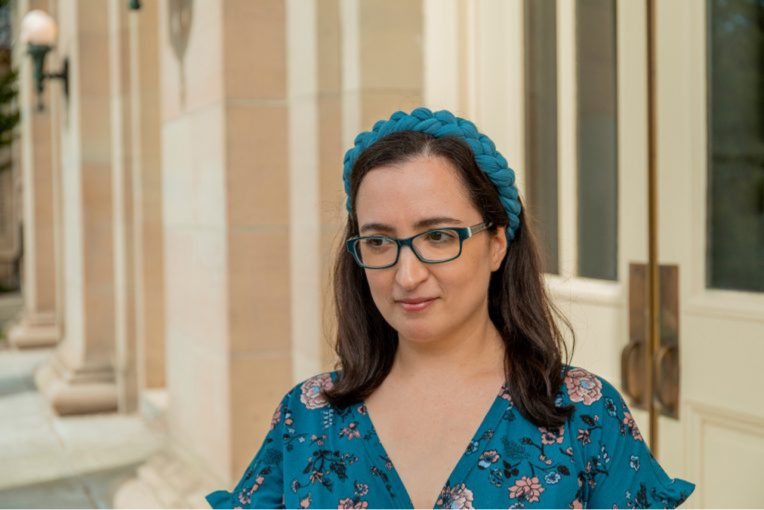The WGSS program held its first face-to-face student research symposium since 2019 in April. Professor Kate Manne is widely known for her timely analysis of misogyny in her book Down Girl: The Logic of Misogyny (2017) and her treatment of male entitlement in her most recent book Entitled: How Male Privilege Hurts Women (2020). She spoke to an audience of 150 campus and community members.
Manne’s keynote clearly laid out the overlooked connections between male entitlement and the production of knowledge. In her virtual talk, she worked through a few examples of ‘mansplaining’ and ‘gaslighting’ to illustrate how certainty and authority can be used to silence those daring to give voice to their own suffering.
Mansplaining, she remarked, “is an epistemic form of entitlement that names privileged men’s assumption that they are best positioned to authoritatively offer opinions on any topic under discussion, even if they know nothing about it.” Mansplaining may also lead to a defensiveness and anger when the mansplainer realizes that the woman is more knowledgeable on the subject than he is. The act of mansplaining, then, is rooted in a man’s sense that he is entitled to be in a position of authority as giver of information, rather than to be in the more vulnerable position of listener and learner.
Gaslighting also damages women’s epistemic credibility. The practice can be understood as an attempt to dominate or manipulate someone so that she doubts her memory or sense perceptions, often to the point where she might begin to think she suffers from mental delusions. Gaslighting hurts women as knowers. The practice instills doubt in our own lived experiences and may cause others to believe that the testimonies we offer for these experiences are inaccurate.
Both gaslighting and mansplaining, according to Manne, have an immense psychological impact on women. It may be irritating to have you own area of expertise explained to you, or to be pushed into disbelieving your own experiences—it can also erode a woman’s confidence and sense of self, and her genuine entitlement to be treated as a credible knower about her own experiences and areas of expertise.

